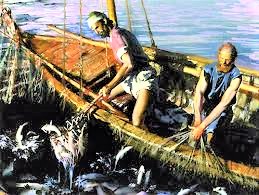Is Religion Too Complicated?
 |
| Google Image |
During my time as a priest in rural Bolivia, where fundamentalist Protestants were making inroads into a traditionally Catholic population, I often thought about how complicated Catholicism is, making it difficult to grow a native church.
To produce a priest, for example, requires four years of college and four years of theology, once a young man graduates from high school. In the parish where I worked, few people were able to complete elementary school. What’s more, priests are required to be celibate, a major obstacle among the indigenous population where a male wasn’t considered a man until he married and had a family.
Catholic theology has been evolving over 2,000 years, making it complex and baggage-ridden.
By contrast, the sects represented by the non-Catholic missionaries there were simple. They produced ministers within weeks. Their theology was elementary and uncomplicated.
Adapting Without Compromising
It brought home to me the necessity, and difficulty, of adapting the faith to every culture without compromising on the essentials of Jesus’ message.
Though simplicity has its appeal, Christianity is not meant to be simple. Contrary to the principles of fundamentalism, it doesn’t accommodate people looking for simple, black-and-white answers to life’s most important questions.
In a recent article entitled “The Heresy of Oversimplified Christianity,” Daniel Horan, a theology professor at the Catholic Theological Union in Chicago, writes that whereas a kind of “false Christianity promotes "either/or" approaches to faith and morals, true Christianity has always been a "both/and" tradition.
“The incarnation cannot be reduced to either divinity or humanity, but always both God and human. The moral tradition cannot be reduced to concern for one life issue, but can only make sense in the promotion of a consistent ethic of life that is inclusive of all populations.”
 |
| Daniel Horan Google Image |
I believe God works his wonders in people according to their ability to receive them and that ability evolves, no matter a person’s education or resources. The job of people wanting to help others in acquiring faith and growing in faith is to help with that task.
What helps answer questions about the extent to which people of varying education and resource levels receive faith is belief in the God who is loving father/mother. We can never “impart” our faith to others. It’s God who does that. And I believe God provides people, usually through others, with the kind of faith that is most appropriate for them.
The Apostle Paul, writing to the Christians of Corinth, reminds them, and us, of this when he says that he “planted, Apollos (another itinerant Christian preacher of the First Century) watered, but God gave the growth.”
More Expected?
Is it possible, however, that God expects more from those who have the benefit of more education and resources? All of us, I believe, whether well-educated or not, should be willing to help others in their search for God, keeping in mind our limitations.
I like the quotation attributed to Oscar Romero, the Salvadoran archbishop who was outspoken in his defense of the poor. He was murdered during Mass in 1980 by a member of the El Salvador’s military.
We cannot do everything, and there is a sense of liberation in realizing that.
This enables us to do something, and to do it very well. It may be incomplete, but it is a beginning, a step along the way, an opportunity for the Lord's grace to enter and do the rest.
We may never see the end results, but that is the difference between the master builder and the worker. We are workers, not master builders; ministers, not messiahs. We are prophets of a future not our own.



Comments
Post a Comment